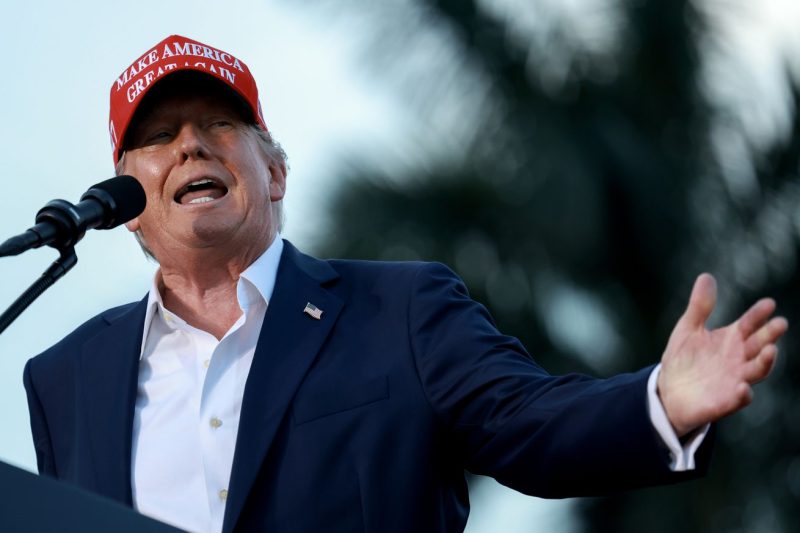With Meta (formerly Facebook) lifting the restrictions on former President Donald Trump’s Facebook and Instagram accounts, the social media landscape is once again buzzing with speculation and debate. This move comes after a two-year suspension imposed in the wake of the Capitol riot, with Meta signaling their intention to allow Trump back onto the platforms with some caveats. The decision has stirred up a range of reactions from users, politicians, and experts alike, with opinions divided on the implications and significance of this development.
One of the primary concerns surrounding Trump’s reinstatement to social media is the potential impact on public discourse and the spread of misinformation. During his time in office, Trump was known for utilizing social media platforms to communicate with his followers and amplify his messages, often courting controversy and pushing boundaries with his posts. His suspension was imposed due to concerns about his posts inciting violence and spreading false information, particularly in the aftermath of the Capitol riot.
By allowing Trump back on Facebook and Instagram, Meta is navigating a delicate balance between promoting free speech and protecting users from harmful content. The company has stated that Trump will be reinstated under the same rules that apply to all other users, meaning that he will be subject to content guidelines and could face penalties if he violates the platform’s policies. This move reflects Meta’s attempt to address criticisms of bias and censorship while maintaining a commitment to fostering a safe and respectful online environment.
The decision to lift the restrictions on Trump’s accounts also raises questions about the influence of prominent figures on social media platforms and the role of tech companies in regulating online speech. Trump’s suspension sparked debates about the power that platforms like Facebook and Twitter wield in shaping public discourse, with some advocating for stricter regulations to curb the spread of misinformation and hate speech. The reinstatement of Trump’s accounts highlights the complex interplay between freedom of expression, platform policies, and societal values in the digital age.
Additionally, Trump’s return to social media has political implications, as his posts have the potential to galvanize his supporters and shape public opinion on a range of issues. With the 2024 presidential election looming on the horizon, Trump’s presence on Facebook and Instagram could play a significant role in shaping the political landscape and influencing voter perceptions. His ability to reach millions of followers instantly through social media platforms gives him a unique platform to advance his agenda and connect with his base.
In conclusion, Meta’s decision to lift the restrictions on Donald Trump’s Facebook and Instagram accounts marks a significant moment in the ongoing debate over online speech and platform regulation. The reinstatement of Trump underscores the challenges that tech companies face in balancing free speech with the need to protect users from harmful content. As Trump returns to social media, the impact of his posts and the reactions they provoke will continue to be closely watched, with implications for public discourse, political engagement, and the future of social media governance.




























